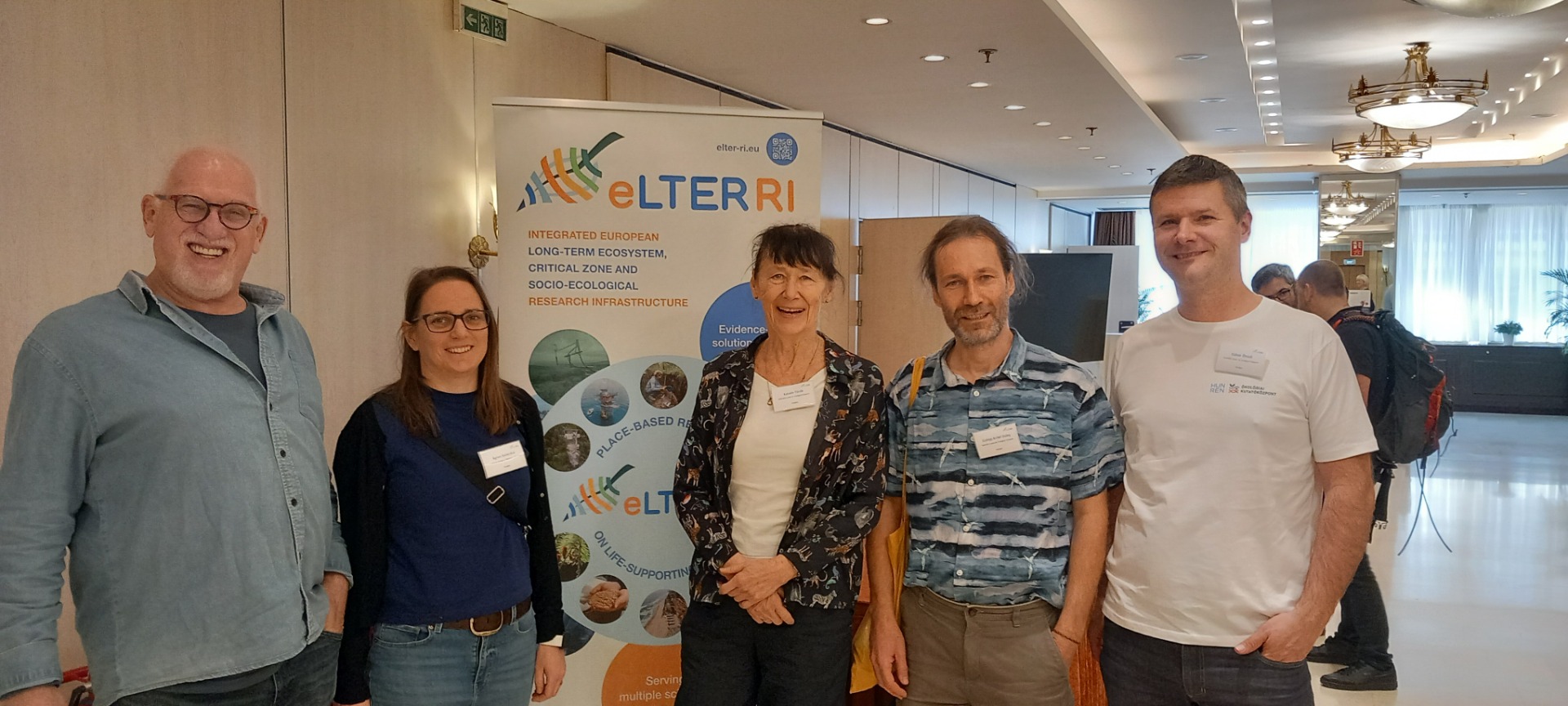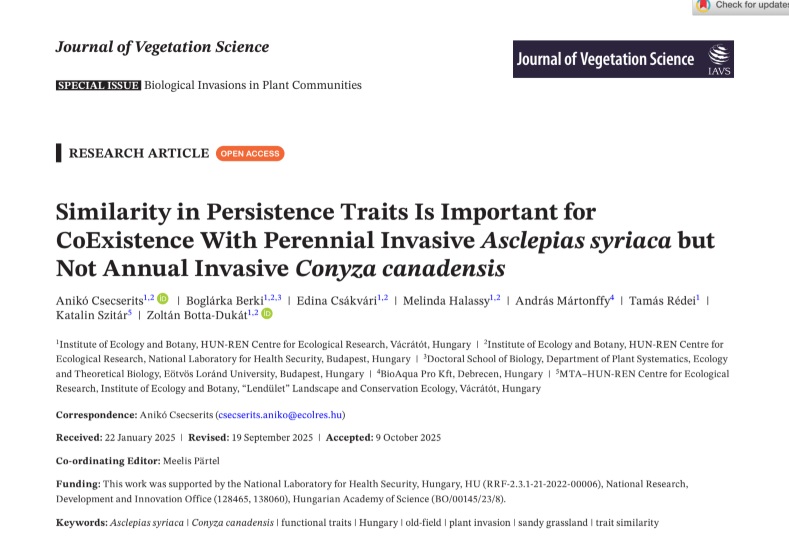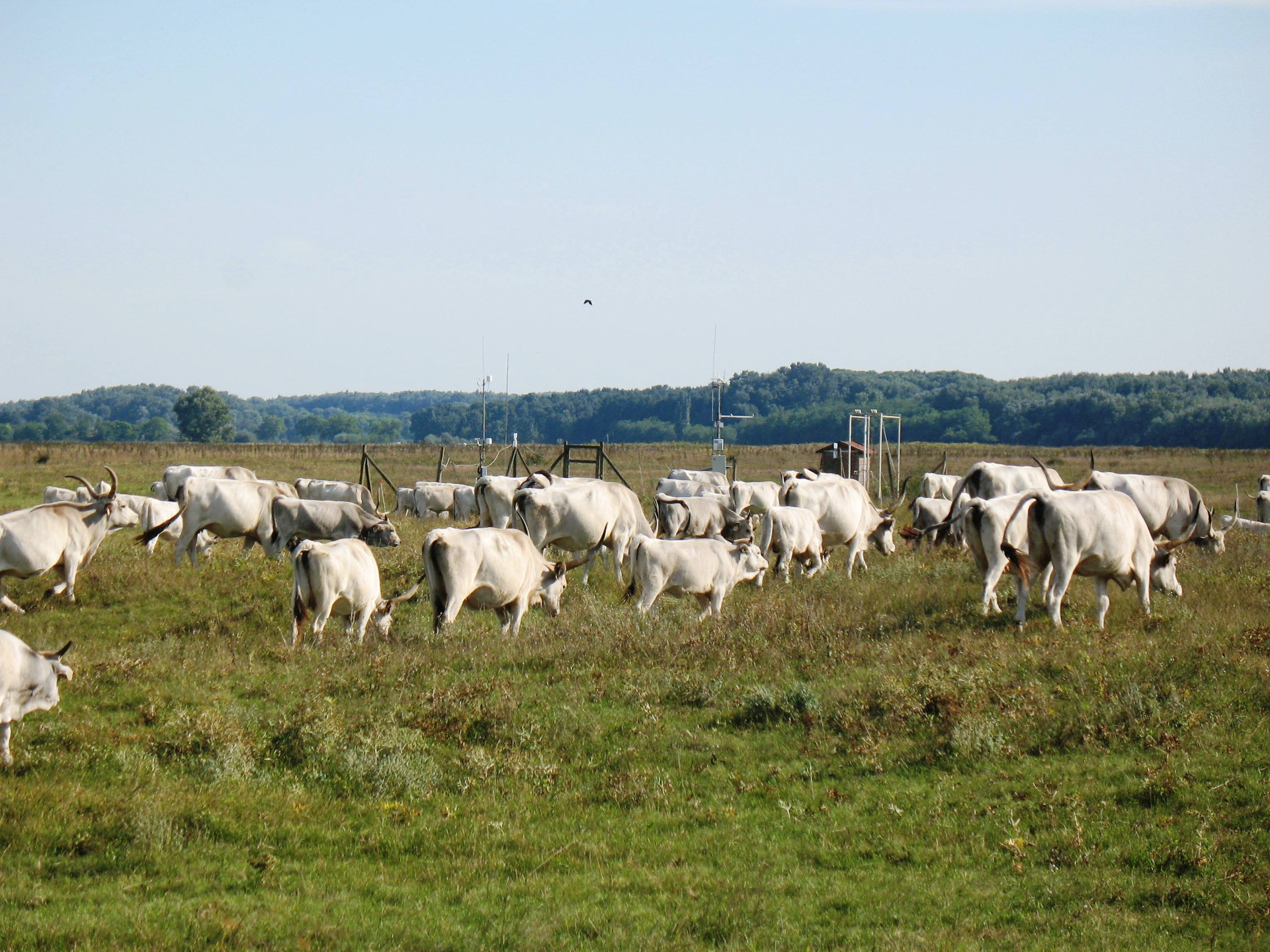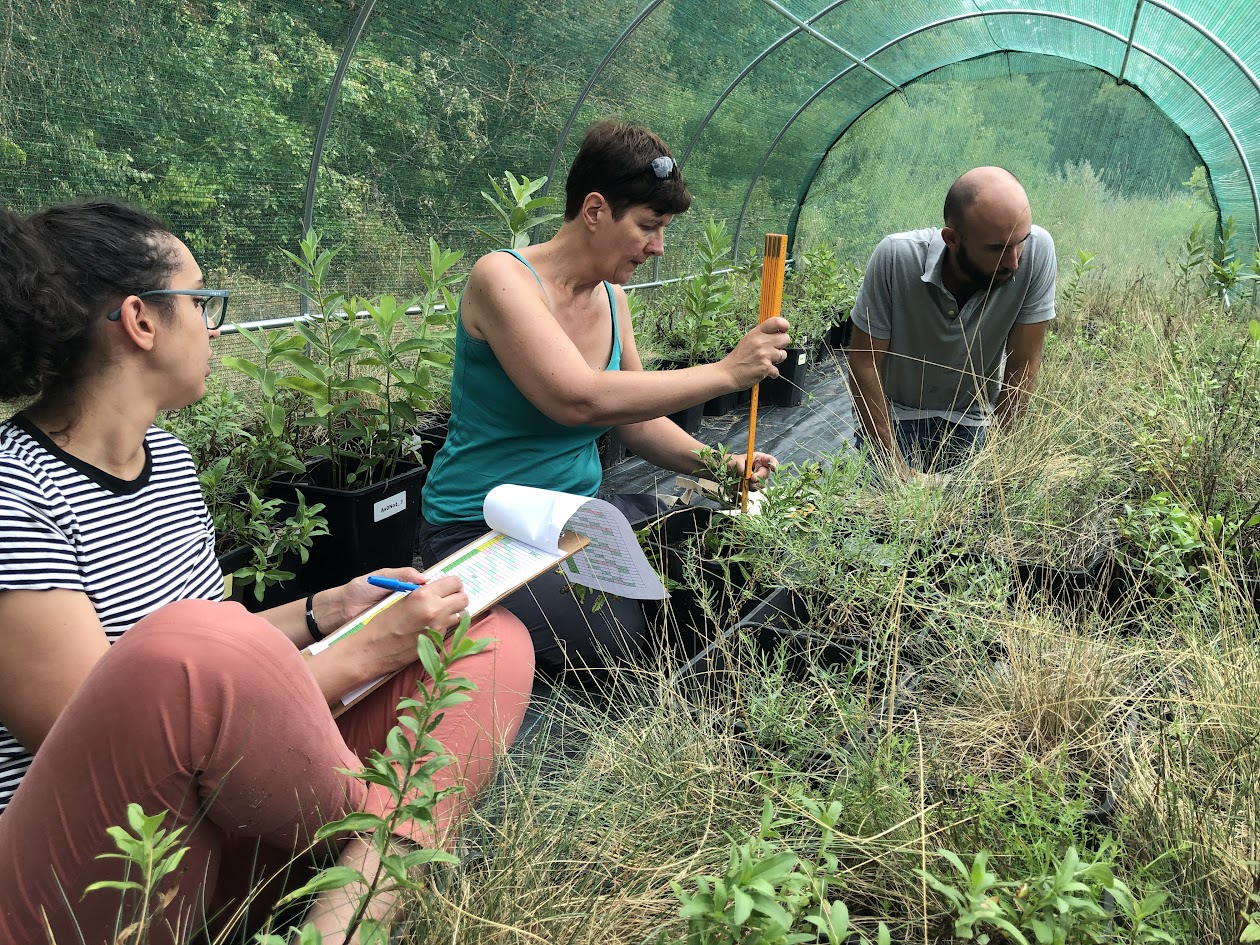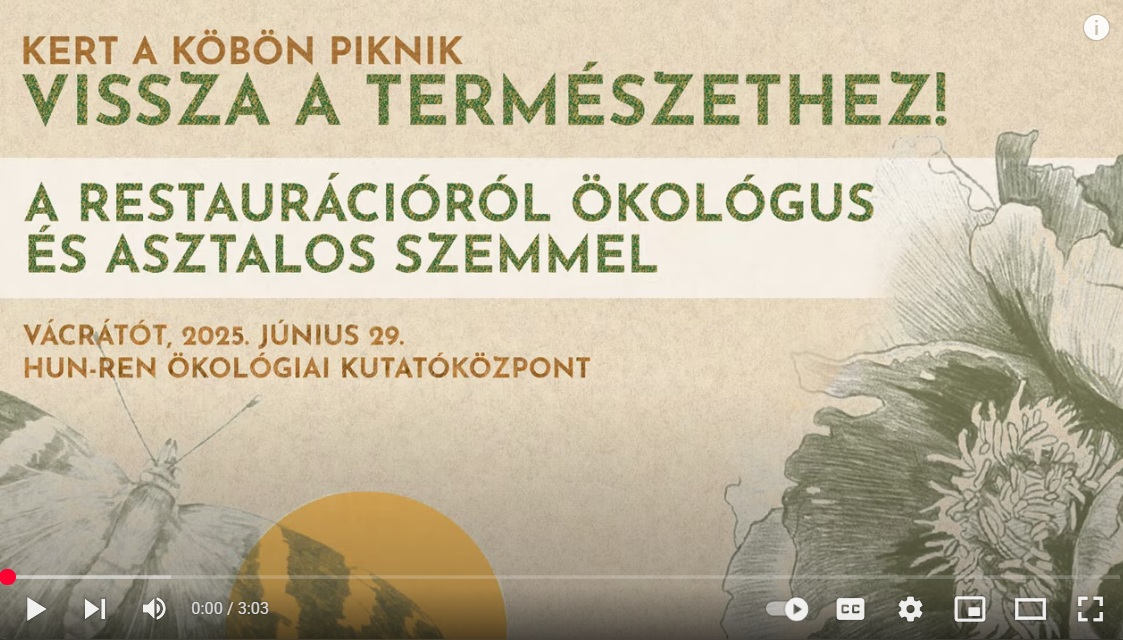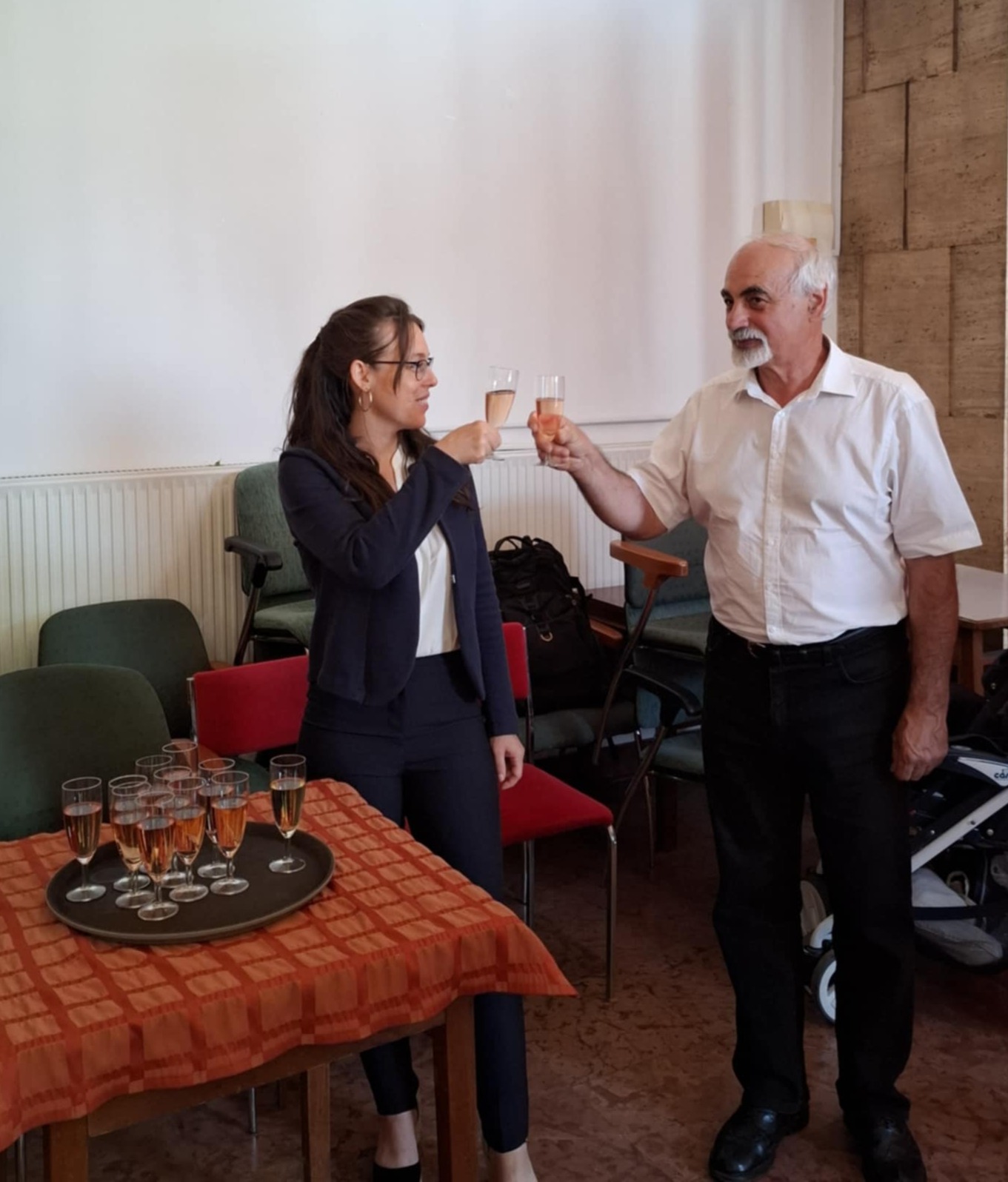Megnyílt a regisztráció a "Planetáris egészség a polikrízis idején. Összekapcsolt rendszerek és komplex válságok – új irányok a planetáris egészség kutatásában" című konferenciára.
Restoration Ecology Group
HUN-REN Centre for Ecological Research, Hungary
Welcome to the homepage of the Restoration Ecology
Research Group of the Institute of Ecology and Botany,
HUN-REN Centre for Ecological Research.

Restoration ecology combines ecological theory and practical applications leading to restoration of disturbed, degraded or completely damaged ecosystems (see more at Society for Ecological Restoration).
We investigate the spontaneous regeneration capacity and the restoration possibility of Pannonian sand grasslands. The group also aims to disseminate the ideas of restoration ecology and to positively influence the national and international policy.
More information about our Centre: www.ecolres.hun-ren.hu
What's new?
The closing international consortium meeting of the eLTER PLUS and eLTER PPP research projects was held recently, marking an important milestone in the development of long-term ecological research infrastructure in Europe. Staff from the HUN-REN Centre for Ecological Research (CER) also took part in the meeting. The three-day event was held in...
A HUN-REN Ökológiai Kutatóközpont, csoportunk közreműködésével, és a Magyar Népegészségügy Megújításáért Egyesület "Planetáris egészség a polikrízis idején. Összekapcsolt rendszerek és komplex válságok – új irányok a planetáris egészség kutatásában" címmel konferenciát rendez 2026. március 19-én.
PhD positions at ELTE University
ELTE University's Doctoral School of Biology is awaiting PhD applications until 15th of January, 2026. More information on the attached flyer!
New Article! - Invasive species trait similarity effect on co-occurring species composition
Read the freshly published article of our colleague, Anikó Csecserits, written in collaboration with our group lead and members, to learn about how Asclepias syriaca and Conyza canadensis traits fit into the regional plant trait space, and how their trait similarity and cover interacted to influence the occurrence of the rest of the species in the...
The breath of grasslands, or the role of different carbon sources in grassland CO2 emissions
János Balogh (MATE Department of Plant Physiology and Plant Ecology, balogh.janos@uni-mate.hu)
Experiment progress
Our group is busy taking measurements in the experimental tent. In this segment of our experiments, we are assessing the ability of native grassland plant species to outcompete invasive alien species. Moreover, we are testing the effect of various factors on the establishment of sown native and invasive communities, for example:
The Centre for Ecological Research has run a number of 'Kert a Köbön' events in the past few years. The title translates directly to "Garden to the power of three" to indicate that these events are a melting pot of three realms: garden-world, ecology and botany. More specifically: they are the perfect place for people to enjoy the beauty of...
Edina Csákvári has successfully defended her PhD at the Hungarian University of Agriculture and Life Sciences, in Gödöllő, with the dissertation titled "Study of the feasibility of digital image processing in wheat cultivation".
Degraded terrestrial grasslands are increasingly prioritized for restoration due to their significant ecological and economic importance. On the one hand, indicators need to be target-specific, on the other hand standardization is required for a comparable evaluations of interventions.
Intézetünk fenntarthatósági terve
Intézetünk elkötelezett a fenntarthatóság iránt. A társadalmat és környezetünket szolgáló tudományos munkán kívül több ÖK-s intézkedés is a fenntarthatóság érdekében született és zajlik.
Természethelyreállítás a Vajdahunyad-várban
Május 16-án, a Magyar Nemzeti Parkok Hetének nyitóünnepségén a Vajdahunyad-várba látogatók többek közt az EU természethelyreállítási rendeletével is megismerkedhettek. A kisebbek játékos feladatokon keresztül szerezhettek élményeket és ismereteket arról, hogy miért fontos óvnunk, illetve helyreállítanunk természeti környezetünket, a felnőtt...



